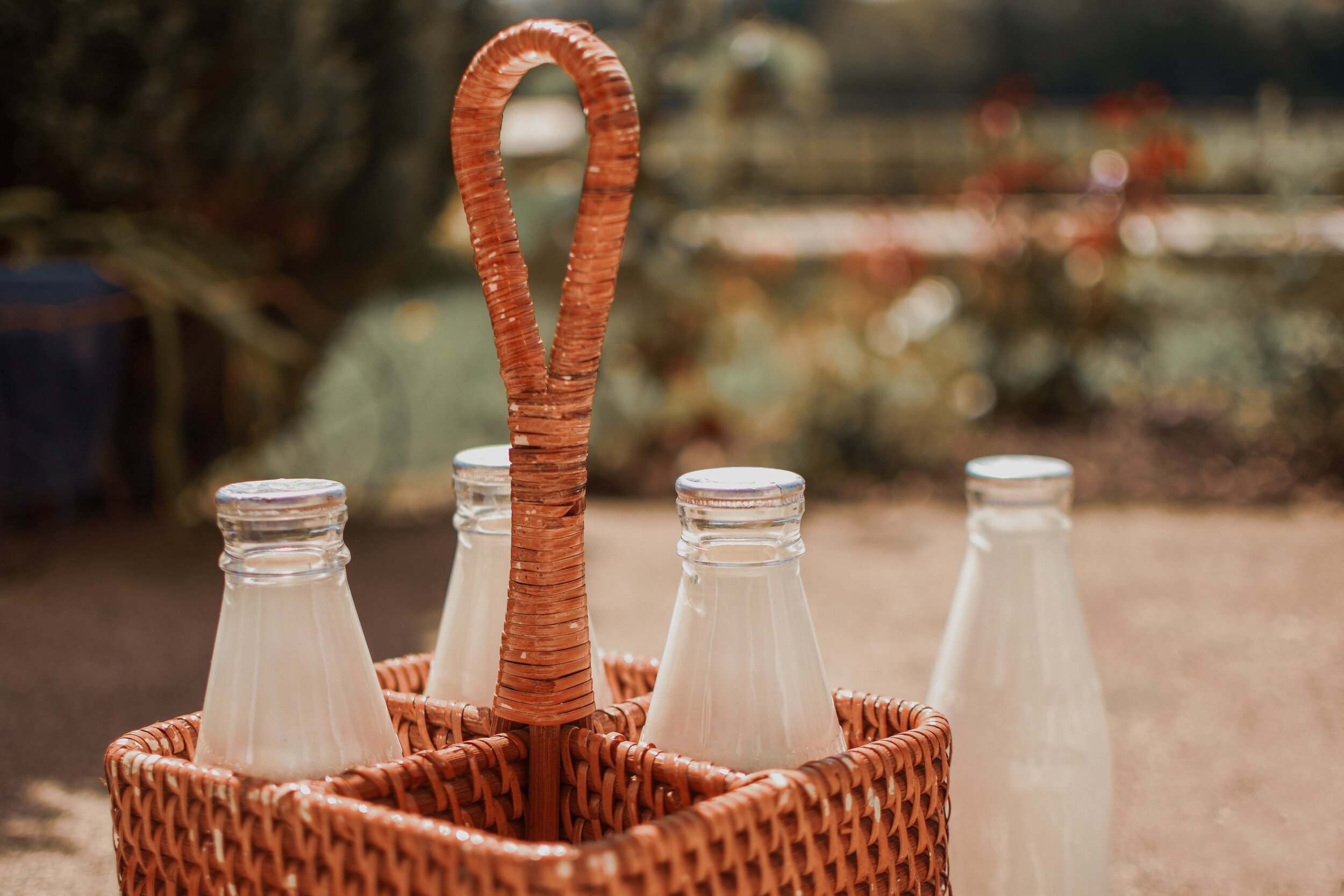The End of Dairy Bottle Deposits? Yes.
We must applaud local dairies. They have been at the forefront of recycling and recurring commitments to weekly deliveries of fresh dairy products to consumers’ doors. Dairies were well ahead of Amazon Prime—prior to the very existence of the Internet.
For decades, dairies have regularly collected a deposit (e.g. $2) for each recyclable glass bottle that could be washed and re-used for the following week’s deliveries. In the era when ledgers were managed on paper and cash was collected, bottle deposits were easily managed and administered. If a client cancelled and returned their bottles, the deposits could be paid out of petty cash from the bookkeeper’s lockbox drawer..
Times have changed. Cash is disappearing as consumers opt for credit cards, and ecommerce has revolutionized the expectations of ordering every product with click-of-a-button for home delivery. Read: 5 Easy Steps to Make Delivery Profitable for Your Farm.
Keep it Simple: Spread the Costs
The concept of a “refundable deposit” has disappeared in the modern era of ecommerce. Fortunately, dairies understand the value of selling direct-to-market and the convenience of door-to-door deliveries. However, their models for “bottle deposits” and payments need to evolve to align with the expectations of buyers.
In lieu of a bottle deposit, modern dairies now “spread the costs” of anticipated loss across their entire customer base. This makes both collecting and refunding deposits unnecessary, which saves time and money managing and accounting for each customer.
While this may disrupt the “status quo” of your dairy, or change the way things have been done, there is no deposit in modern ecommerce. The best examples are Netflix (no deposit for DVDs mailed to your home) and StitchFix (no deposit for Clothes mailed to your home). Rather, these organizations calculate the expected cost for packaging based on actual data, then spread the costs across all customers, making everyone’s lives easier.
For instance, let’s assume a dairy with 100 customers expects 10 bottles per month to break, and 2 customers to leave (due to normal attrition). At a cost of $2 per bottle, the cost of 12 bottles would be $24, or a loss rate of $0.24 per customer (assuming one bottle per customer). As a result, the dairy should simply add the loss rate ($0.24 per bottle) to their base cost (e.g. $6.50) for each gallon of milk sold (total of $6.74 per gallon).
The absence of a deposit should be a welcome relief to every dairy operation. Now, you can simply focus on what matters—your products and your customers. Branded glass bottles certainly display your quality product in a quality container and reaffirm your commitment to sustainability, but there’s no need to wrestle with bottle deposits to cover their cost. Read: The 4 Levers for Your Farm to Succeed Selling Direct.
Acquire Subscriptions
Dairies are romanticized in American folklore and culture—despite being one of the hardest, most persistent and demanding jobs on the planet. There is never a day off for a dairy Farmer.
Because the animals are milked on a regular schedule, your Farm can estimate your production capacity with a strong degree of accuracy. As a result, you must build a base of loyal, recurring customers for your dairy. This is why the concept of the Milkman emerged early on—to provide a regular and consistent milk run to local families.
In recent decades, big box grocers, distributors and the dairy consortium have interrupted dairies’ direct-relationship with buyers (and eroded margins). However, today, your dairy can readily access and build customers relationships online–thanks to the convenience of the Internet.
Acquiring, building and maintaining a strong base of subscribers is key to your dairy business. Subscriptions offer your Farm increased cash flow, but more importantly direct relationships with your buyers that will increase your profit margins, reduce risk across a broad base of customers, and give you peace-of-mind. Read: Subscriptions with Barn2Door.
Best of all, buyers love subscriptions. Thanks to Netflix, StitchFix, Spotify, and Amazon, buyers expect and look for subscriptions. Combined with the convenience of door-to-door delivery, your Farm is in a prime position to build a strong and resilient business. Read: Which Routing App is Right for your Farm?
Learn More
To learn more about the success that other Farmers are having with Barn2Door, we encourage you to visit the growing collection of Farmer Testimonials.
Watch how Barn2Door works in 5:40 to see how we could serve your Farm, or to schedule an appointment with a Barn2Door team member.




